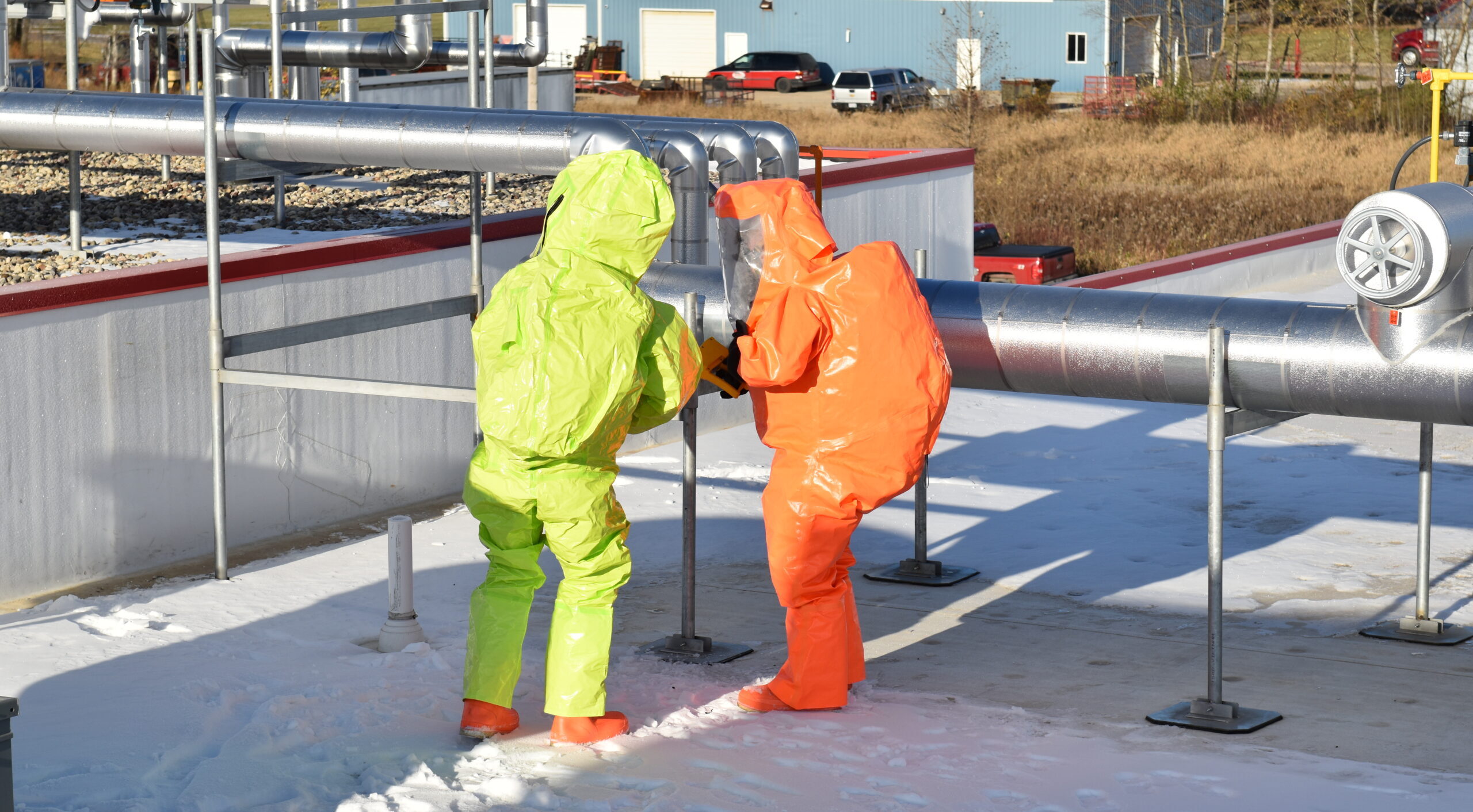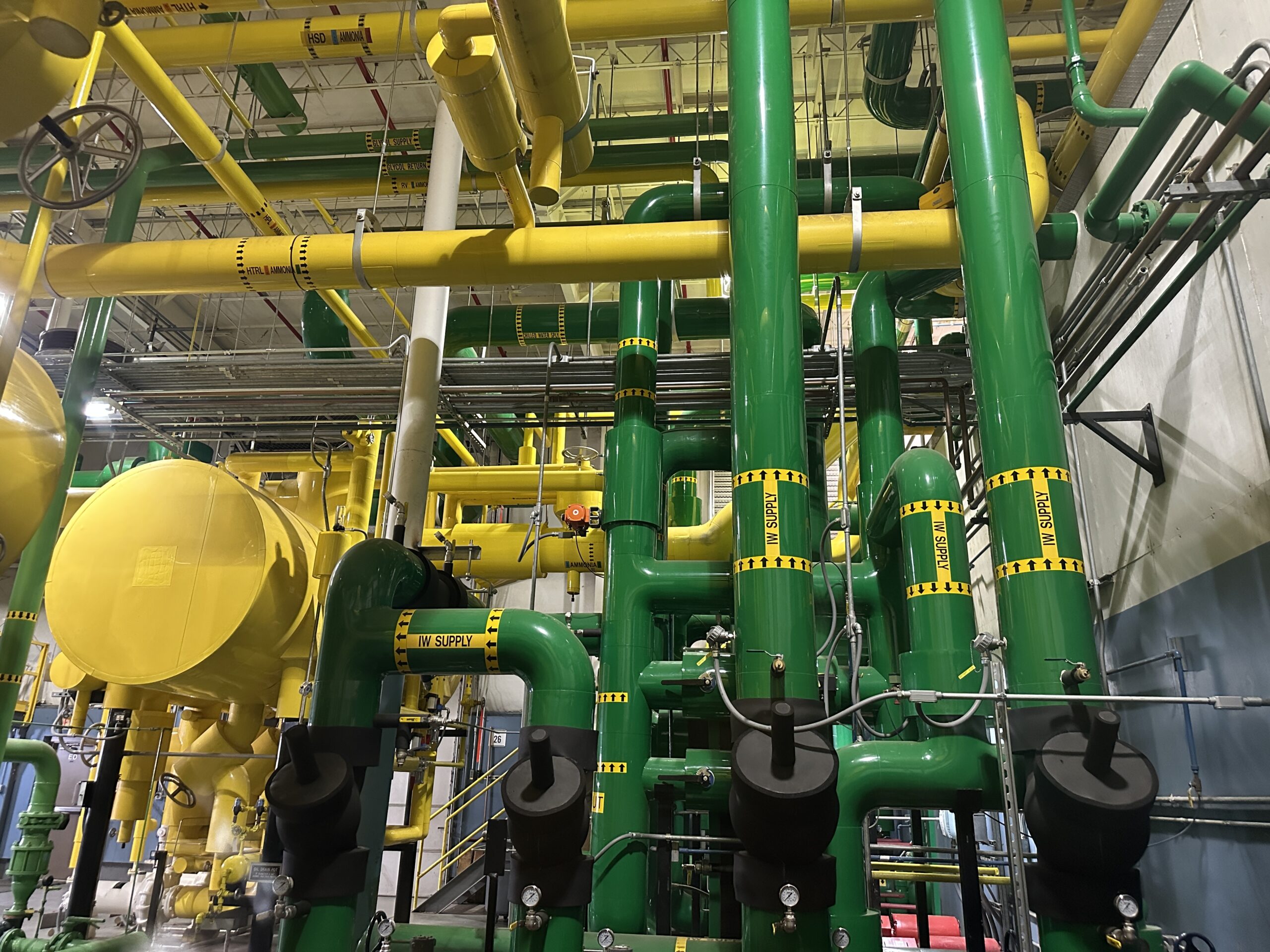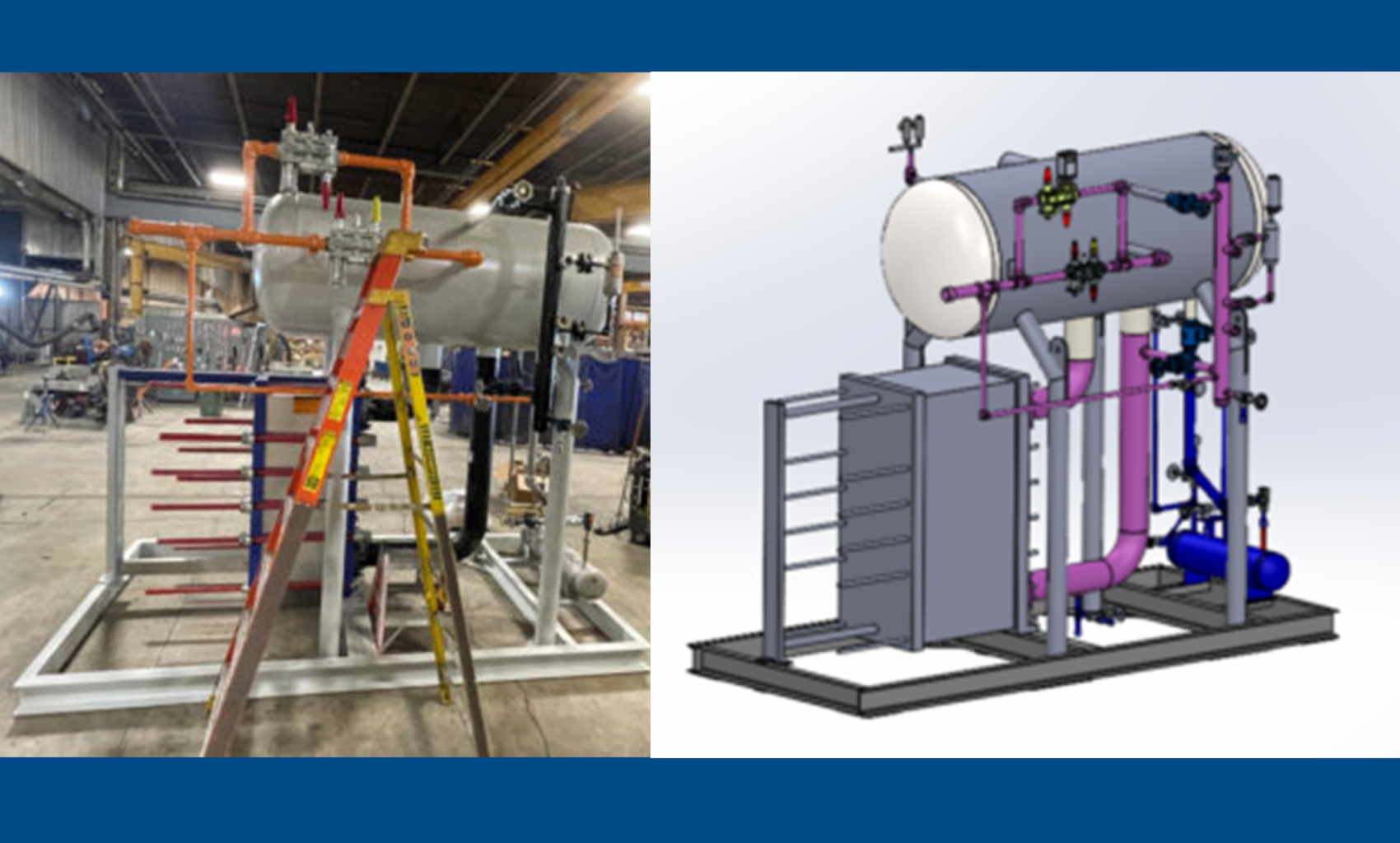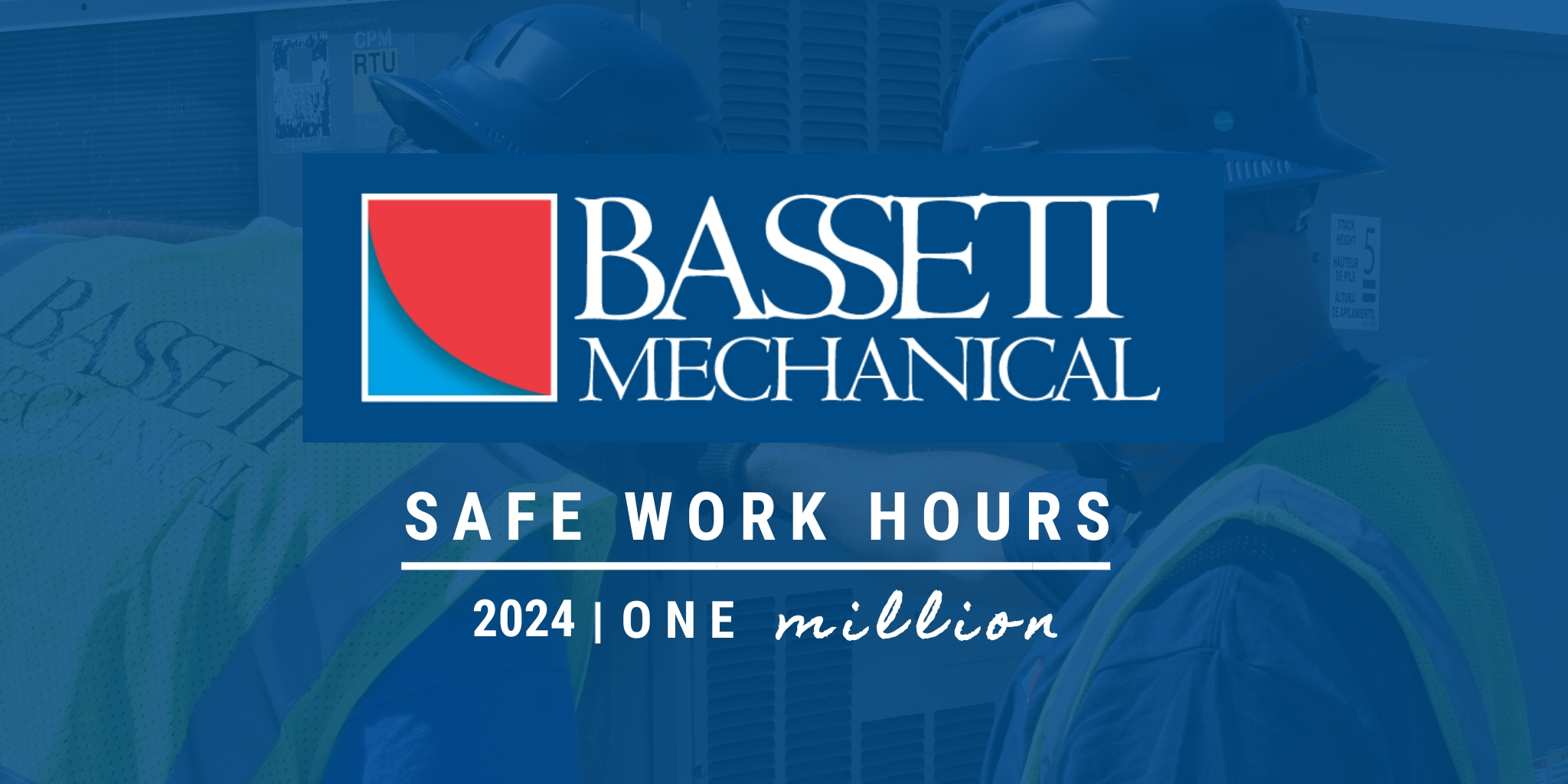In industrial refrigeration settings where ammonia plays a vital role, safety is paramount. Ammonia, while indispensable in various processes, poses significant risks if not handled with utmost care. That’s where Bassett Mechanical’s 24/7 ammonia response capabilities shine, offering clients peace of mind and a proactive approach to managing potential emergencies. Our technicians and leaders are on call 24/7/365 to ensure you get the service you need when you need it. We fully understand the importance of keeping your system operational and how detrimental any operational downtime can be. This article will explore why these capabilities are crucial for our customers and provide insights into preventing ammonia leaks.
Highly Trained Emergency Response Team
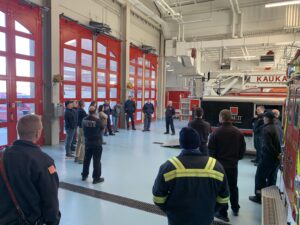 Having a knowledgeable mechanical contractor respond to ammonia incidents is paramount due to the inherent risks of handling ammonia in refrigeration systems. Bassett Mechanical’s ammonia response team can respond to anhydrous ammonia incidents because all refrigeration technicians are trained to OSHA’s Hazardous Waste and Emergency Response standard (HAZWOPER).
Having a knowledgeable mechanical contractor respond to ammonia incidents is paramount due to the inherent risks of handling ammonia in refrigeration systems. Bassett Mechanical’s ammonia response team can respond to anhydrous ammonia incidents because all refrigeration technicians are trained to OSHA’s Hazardous Waste and Emergency Response standard (HAZWOPER).
“This allows our closest technician to respond and even be part of the operations team should the incident involve local response teams like Fire and County Rescue or Regional Hazmat Teams. We dispatch our Response Trailer as needed, which has full response capabilities with Level A Suits and self-contained breathing apparatus (SCBA),” said Scott Nehls, Regional Refrigeration Operations Manager.
Level A protection is required when the most significant potential for exposure to hazards exists. This level provides the highest available respiratory, skin, and eye protection from solid, liquid, and gaseous chemicals. The Level A ensemble includes a positive pressure, full-facepiece SCBA, or positive pressure supplied-air respirator with escape SCBA, an encapsulated chemical—and vapor-protective suit, inner chemical-resistant gloves, chemical-resistant safety boots, and a two-way radio communication system.
Our team collaborates closely with Local Fire / EMS, County, and Regional Hazmat Teams, as they are typically notified before Bassett. Bassett has conducted several training courses on anhydrous ammonia for Fire Departments, County and Regional Hazmat teams, and even at the Wisconsin Association of Hazardous Materials Conference (WAHMR).
“We specialize in being your emergency service response team. Let our trained technicians take care of your business when an issue arises,” said Nehls.
Immediate Ammonia Response, Minimized Downtime
One of the most significant benefits of our 24/7 ammonia response capabilities is the assurance of immediate assistance, regardless of the time or day. Ammonia emergencies can escalate rapidly, leading to downtime, environmental hazards, and even endangering lives. With our round-the-clock availability, customers can rest assured that trained professionals equipped with specialized tools and protocols are always on standby to address any incident, minimizing disruptions to operations swiftly.
Protecting Assets and Personnel from Ammonia
Ammonia leaks or spills threaten equipment and facilities and jeopardize personnel’s safety. Our rapid response capabilities prioritize the safety of both assets and individuals. By promptly containing and mitigating incidents, we help prevent injuries, avoid costly damages, and uphold the well-being of everyone involved.
Cost Savings and Operational Continuity
Ammonia-related incidents can have significant financial implications, ranging from cleanup costs to regulatory fines and lost revenue due to downtime. Customers mitigate these potential costs by utilizing Bassett’s 24/7 response capabilities, helping to minimize interrupted operations. The ability to address emergencies swiftly diminishes downtime, safeguarding productivity and revenue streams.
Environmental Stewardship
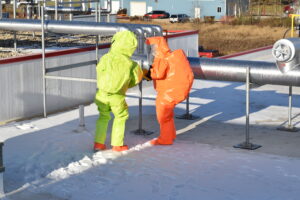
Beyond the immediate operational concerns, ammonia leaks can also have environmental repercussions. Our rapid response capabilities are designed to minimize environmental impact by swiftly containing and mitigating incidents. By preventing the release of ammonia into the surrounding environment, we help safeguard ecosystems and demonstrate our commitment to environmental stewardship.
How To Prevent Ammonia Leaks
While our 24/7 response capabilities provide a crucial safety net, proactive measures to prevent ammonia leaks are equally essential. You can take several steps to minimize the risk of incidents:
- Regular Maintenance: Implementing a robust maintenance schedule for equipment and infrastructure can help identify potential issues before they escalate into emergencies.
- Training and Education: Properly training personnel on safe handling procedures, emergency protocols, and the detection of potential leaks empowers employees to act swiftly in the event of an incident.
- Investing in Monitoring Systems: Installing ammonia detection and monitoring systems provides early warning of leaks, allowing for rapid response and containment.
- Upgrading Infrastructure: Investing in modern infrastructure and equipment designed with safety features can mitigate the risk of leaks and enhance overall operational safety.
- Compliance with Regulations: Adhering to industry regulations and standards ensures that facilities operate within safe parameters and reduces the likelihood of incidents. In addition, implementing a Process Safety Management plan and Risk Management Program will help mitigate hazards for your people, facility, and community.
Reliable Ammonia Response Team
In an environment where safety and operational continuity are paramount, Bassett Mechanical’s 24/7 ammonia response capabilities offer invaluable reassurance to customers. By prioritizing swift and effective emergency response, we help safeguard assets, protect personnel, and mitigate financial and environmental risks. However, while our response capabilities are a crucial safety net, proactive measures to prevent ammonia leaks remain essential. We can collectively work towards a safer and more resilient industrial landscape through collaboration and a shared commitment to safety.

